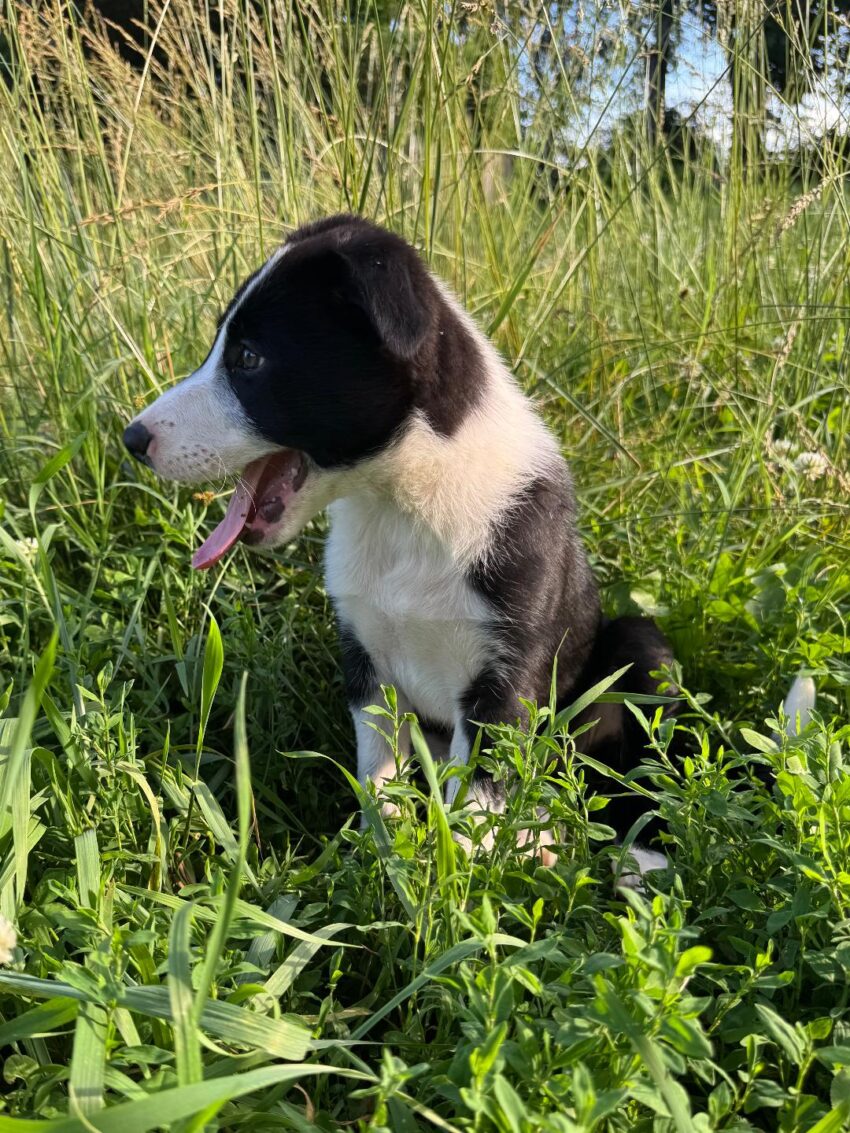Walking in Scotland I felt the lightness of being without; without a working phone, without work, farm chores making meals, cleaning, in short, responsibility. Paul and I strolled along the River Ness at a pace that did not include the fast-walk. We stopped to pet dogs, chat with their owners. We watched the trees slowly unfurl their leaves as spring, like us, arrived for a visit.
Once over the pond, we dropped our small pile of worldly goods at the hotel. Beside them, in a pile dusty from age, I also left my grief. Stepping down the steps out into the sunshine, hands free, made me realize how heavy that grief has been, like a backpack hanging off one shoulder.
The ten days we traveled didn’t make me forget my dusty bag of grief. I realized that returning home would mean picking it back up again but I chose not to think about it, instead focusing on sunshine sparkling on the tea colored river, watching Paul take his first bite of Haggis and strolling through large estate gardens, pointed and painted tulips waving in the spring air.
Sitting in the plane circling Boston, Paul leaned over and squeezed my hand. There is always melancholy in dropping down from the clouds back into reality. My phone lit up and my stomach felt tight. I had a visceral vision of the list of things waiting.
On a farm, spring is the primary working season. The moment we returned we launched into the long preparation for next winter. The perimeter of our pasture land needed to be mowed, fenced and the fields made ready for sheep. In the middle of the pasture sat our movable sheep shed that had, Wizard of Oz-like, been lifted into the air, flipped and dropped top-down during a winter storm.
We lost one bee hive to cold spring air. In emptying it out I found frames full of fall honey. I spent an afternoon extracting, filling small glass jars with gold. Satisfying, but exhausting.
Our gardens needed to be filled, our greenhouse looked abandoned with the doors flapping open. Under grow lights in our kitchen, tomatoes, lanky like our sons, wait for us to carry them down in long trays to the greenhouse where they will spend their summer lives and bear children. I spend hours on my knees planting and swatting black flies.
Our shearer comes and our sheep get unzipped from their winter coats. Tiny now, they don’t recognize each other and spend the next day determining the order of things. Farm workers stay late and we toss fleece, like clean sheets on a bed, onto the new skirting table Paul has built. I spend the rest of shearing day pulling vegetable matter from wool, my hands soft from the lanolin. The next day I drive my Shetland lamb fleeces to the wool mill where they buy them all. The cycle begins again.
Busyness drowns out the loud noise of grief and fear. When my hands are full of wool or black with soil, satisfaction is primary.
Sometimes, under the light from the barn, I stand near Bronte, both of us looking in the darkness to our road down to the compost piles where Muir rests. It has been over a year now but I still see him following me as I do evening chores, racing into the barn up onto hay bales, ever happy, ever faithful. My grief, like that; faithful in its devotion to the past, reluctant to pack up and leave me.
The swirl of spring, with its pregnant lilacs and flittering poplar leaves is, by definition, change but I recognize that, standing in knee high rubber boots, I am mired in muck, stuck, unable, unwilling to move from this emotional sink hole.
Until I do.
In the middle of a day filled with teaching, I quietly sit at my computer and begin to type emails to all of my friends who are part of the sheep herding community. I am putting out an SOS, a call for a Border collie.
Even just writing the email, I feel something inside of me shift, like shoveling a large, heavy pile of compost out of the way. Release is necessary but I struggle with that, not wanting to move past this dog, not wanting him to be replaced, but knowing it is time.
Something is coming. It will require me stepping out of comfort, but I have made my decision to stop pushing away from life and to begin to walk into it.
